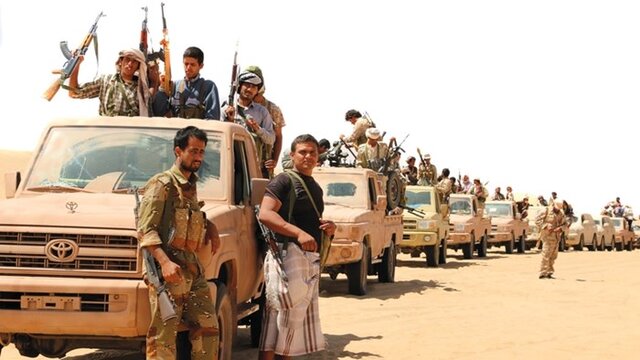Speaking to the website of the Strategic Council on Foreign Relations, Reza Mirabian said that despite all the efforts of the Saudi coalition to reduce the pressure on the Ma’rib front, the Yemeni army and the People’s Committees continued their progress at the southern gate of Ma’rib. He noted that Ma’rib has become a battleground between Yemeni forces and Saudi-affiliated militias; because of the abundance of energy resources and its role in providing energy to different regions of Yemen, this province is of strategic importance.
He added: “The forces affiliated with Mansour Hadi, the resigned president, have suffered heavy defeats in recent days and have lost many of their positions in East and Central Al-Belkin.”
Ansarullah’s determination to liberate Ma’rib
Mirabian added: “The rapid developments in Yemen and Ansarullah’s upper hand in the war show that there is nothing left until the official defeat of Saudi Arabia in Ma’rib, and it seems that given the current situation, Ansarullah is determined to liberate Ma’rib and we will see this happen in the future.” The liberation of Ma’rib will give Ansarullah a better position in the political negotiations.
Referring to several rounds of direct and indirect political talks between Ansarullah and Saudi Arabia, the West Asian affairs expert said: “Ansarullah has never rejected the political solution package; however, they set five conditions for the conclusion of the political negotiations, which in the current situation have given priority to two conditions: “lifting the siege of Yemen” and “stopping the aggression.” However, the Saudis have not accepted these conditions.
Referring to the remarks made by the foreign minister of the National Salvation Government to the effect that the Saudis must open Sanaa airport and ports as signs of ceasefire in order to achieve a just peace,” Mirabian said: “The Saudis want political negotiations while continuing their attacks and siege.” But Ansarullah rejects such conditions, emphasizing that this would put them in a position of weakness.
According to the expert on West Asian affairs, now that the situation on the battlefield in Ma’rib has become extremely critical and the province is on the verge of collapse, and on the other hand, we hear reports on the withdrawal of government forces and the possibility of other withdrawals in the future, these issues are addressed again.
Referring to a report in the British Wall Street Journal that Washington had rejected a Saudi request for intelligence and military support to target positions used by Yemeni Ansarullah to attack targets deep inside Saudi territory, he said: “In the current situation US pressure on the Saudis are increasing and Washington believes that Riyadh must accept a political solution with minimal damage. Of course, the Saudis have not accepted this so far, and political negotiations will reach nowhere until they accept these facts.
Mirabian pointing to Ansarullah’s talks with the tribes of the southern provinces of Yemen and the possibility of reaching an agreement with them, said: “Ansarullah, while not closing the door to reach a political solution with Saudi Arabia, also has the upper hand in the field and military advances.” We also see deterrence and attacks deep into Saudi Arabia. In this situation, neither the puppet government forces controlled by Riyadh nor the Emirati and Saudi forces are able to confront Ansarullah.
Stressing that it is very difficult and impossible for the Saudis to accept a political dialogue in these circumstances, he added: “It seems that there will be no solution to start political negotiations or clarify the situation in the Yemeni war until the liberation of Ma’rib.” Ansarullah has also officially announced that, whether negotiations take place or not, they will not negotiate until Ma’rib is liberated. Of course, given the situation on the ground and the political developments in Yemen, it is not possible to predict a specific time for the liberation of Ma’rib, and the war will continue in the short term.
Mirabian, meanwhile, said that the Western media had also acknowledged in recent days that Riyadh was reconsidering its strategy in Yemen. Satellite imagery has also shown that Saudi Arabia is reducing its military presence in Yemen in order to strengthen the protection of its borders, and this decision seems to have been made in anticipation of the dominance of Ansarullah forces over Ma’rib.
American awareness of Saudi weakness
Referring to US military, arms and political support for Saudi Arabia in the Yemeni war, he continued: “US support for Saudi Arabia is now more limited than before.” The Americans are pressuring Saudi Arabia to end the war quickly; because they also know that the future losses will be more for Saudi Arabia.
Mirabian said: “The United States has warned Saudi Arabia in various ways that the continuation of the war will lead to the closure of the doors of a peaceful return of Saudi Arabia from Yemen.” Therefore, the Saudis must leave the war in Yemen with the least damage. Given the developments of the past six years, the Americans know that Saudi Arabia is incapable of confronting Ansarullah.










0 Comments